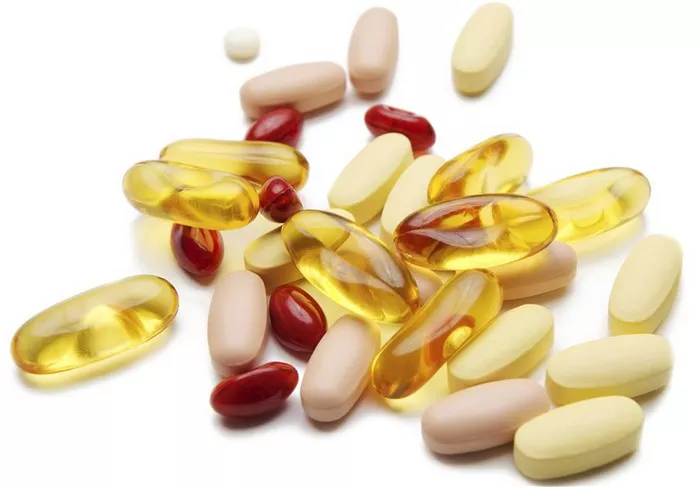Preparing for pregnancy involves more than just timing intercourse. It requires a proactive approach to health and wellness, including proper nutrition and supplementation. Pre-pregnancy vitamins play a crucial role in optimizing fertility, supporting a healthy pregnancy, and ensuring the well-being of both the mother and the developing fetus. In this comprehensive guide, we explore the best pre-pregnancy vitamins, their benefits, and how they contribute to preconception health.
Understanding Preconception Health
The Importance of Preconception Health
Preconception health refers to the health of individuals before they become pregnant. It encompasses factors such as nutrition, lifestyle habits, medical conditions, and environmental exposures that can influence fertility, pregnancy outcomes, and the long-term health of both the mother and child. Investing in preconception health lays the foundation for a healthy pregnancy and reduces the risk of complications during gestation and childbirth.
Role of Vitamins in Preconception Health
Vitamins are essential micronutrients that play key roles in reproductive health, fetal development, and maternal well-being. Adequate intake of specific vitamins before conception can improve fertility, support early embryonic development, and reduce the risk of birth defects and pregnancy complications. Selecting the right pre-pregnancy vitamins is paramount to ensuring optimal maternal and fetal health outcomes.
Best Pre-Pregnancy Vitamins: A Comprehensive Guide
Folic Acid (Folate)
Folic acid, also known as folate, is perhaps the most well-known pre-pregnancy vitamin due to its crucial role in preventing neural tube defects (NTDs) such as spina bifida and anencephaly. It is recommended that women of childbearing age consume 400-800 micrograms (mcg) of folic acid daily, ideally starting at least one month before conception and continuing through the first trimester of pregnancy.
Folic acid supports DNA synthesis, red blood cell production, and neural tube formation in the developing fetus. Adequate folate intake reduces the risk of NTDs by up to 70%, making it an essential nutrient for preconception health. Women can obtain folate from dietary sources such as leafy green vegetables, legumes, fortified grains, and supplements.
Iron
Iron is another crucial pre-pregnancy vitamin, particularly for women who may be at risk of iron deficiency or anemia. Iron plays a vital role in oxygen transport, energy metabolism, and fetal growth and development. During pregnancy, maternal iron requirements increase significantly to support the expansion of blood volume and the formation of the placenta and fetal tissues.
Ensuring adequate iron stores before conception can help prevent iron-deficiency anemia during pregnancy, which is associated with adverse outcomes such as preterm birth, low birth weight, and maternal fatigue. Women should aim to consume iron-rich foods such as lean meats, poultry, fish, fortified cereals, and leafy greens, or consider iron supplements if recommended by a healthcare provider.
Calcium
Calcium is essential for bone health, muscle function, and nerve transmission, making it a critical pre-pregnancy vitamin for both maternal and fetal well-being. During pregnancy, maternal calcium requirements increase to support fetal skeletal development, particularly during the third trimester when bone mineralization is most rapid.
Adequate calcium intake before conception can help build and maintain strong bones, reduce the risk of preeclampsia, and support optimal fetal growth. Dairy products, fortified plant-based milk alternatives, leafy greens, tofu, and calcium-fortified foods are excellent dietary sources of calcium for preconception and pregnancy.
Essential Pre-Pregnancy Nutrients for Reproductive Health
Omega-3 Fatty Acids
Omega-3 fatty acids, including eicosapentaenoic acid (EPA) and docosahexaenoic acid (DHA), play crucial roles in reproductive health, fetal brain development, and inflammation modulation. These essential fatty acids are particularly important during preconception and early pregnancy stages when neural and visual development are rapid.
Supplementation with omega-3 fatty acids before conception may improve fertility outcomes, support healthy ovulation, and reduce the risk of pregnancy complications such as preterm birth and preeclampsia. Fatty fish such as salmon, sardines, and mackerel, as well as flaxseeds, chia seeds, and walnuts, are excellent dietary sources of omega-3 fatty acids.
Vitamin D
Vitamin D is essential for calcium absorption, bone health, immune function, and fetal development. Adequate vitamin D levels before conception are associated with improved fertility, reduced risk of pregnancy complications, and optimal fetal skeletal development.
Many individuals have suboptimal vitamin D levels due to limited sun exposure, dietary factors, or medical conditions. Therefore, preconception supplementation with vitamin D may be necessary to ensure adequate levels for maternal and fetal health. Additionally, consuming vitamin D-rich foods such as fatty fish, fortified dairy products, and egg yolks can support preconception vitamin D intake.
Vitamin B12
Vitamin B12 is essential for DNA synthesis, red blood cell production, and neurological function, making it critical for preconception health and fetal development. Adequate vitamin B12 intake before conception is associated with improved fertility outcomes, reduced risk of neural tube defects, and optimal neurodevelopment in the offspring.
Vitamin B12 deficiency is more common among vegetarians, vegans, and individuals with gastrointestinal disorders, highlighting the importance of assessing and addressing nutritional needs before pregnancy. Dietary sources of vitamin B12 include animal products such as meat, fish, dairy, and fortified plant-based foods.
Conclusion
Optimizing preconception health is essential for achieving a healthy pregnancy and promoting the well-being of both the mother and child. Pre-pregnancy vitamins play a crucial role in supporting fertility, preventing birth defects, and ensuring optimal maternal and fetal nutrition. By incorporating the best pre-pregnancy vitamins into their diet and supplementation regimen, individuals can enhance their chances of conception and lay the groundwork for a healthy and successful pregnancy journey. Consulting with a healthcare provider or a registered dietitian is recommended to personalize preconception nutrition recommendations based on individual needs and circumstances.
[inline_related_posts title=”You Might Be Interested In” title_align=”left” style=”list” number=”6″ align=”none” ids=”6495,6492,6498″ by=”categories” orderby=”rand” order=”DESC” hide_thumb=”no” thumb_right=”no” views=”no” date=”yes” grid_columns=”2″ post_type=”” tax=””]

































